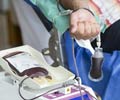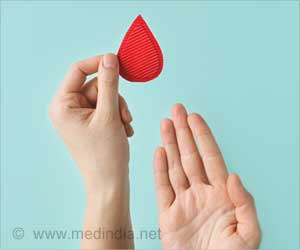Iron deficiency in donors has no adverse effects on regular blood donors’ safety or the quality of donated blood.
- Approximately 35% of regular blood donors experience iron deficiency following many blood donations.
- This raises a worry over the existing criteria for blood donation
- However, a recent study revealed that iron deficiency among blood donors did not have a negative impact on the health and quality of life of blood donors
More People Should Donate Blood
Dr Hod continued by saying that he hoped the study's findings will inspire more individuals to donate blood. 2019 research found that less than 6% of Americans over the age of 18 had donated blood in the year prior. He claimed that more donors would increase the blood supply and lessen the reliance on frequent donors. The COVID-19 pandemic has made an already severe paucity of donated blood in the United States worse, causing planned blood transfusions to be postponed and surgeries to be postponed owing to a lack of blood products.983 frequent blood donors, aged 18 to 75, were tested as part of the Donor Iron Deficiency Study. Ultimately, 79 of the 110 iron-deficient but not anemic donors were randomized. Donors who were pregnant, anemic, or in danger of anaphylactic shock from iron treatment (such as those with severe allergies) were not allowed to give.
All donors gave one standard unit of blood after being screened to ensure their eligibility. Additionally, these donors filled out surveys regarding their quality of life, physical and mental health and cognitive function, including tests of memory, focus and information processing.
About six weeks later, the participants underwent new quality of life and cognitive testing, as well as a test to see if the blood they had donated before met the FDA's (U.S. Food and Drug Administration) standards for donated blood. They were then randomly randomized to receive an intravenous infusion of either iron or a placebo after completing these tests (saline solution). Since the study was double-blinded, neither the subjects nor the study crew was aware of who had gotten the iron infusion and who had received a placebo.
Does Frequent Blood Donation Affect the Donor's Health?
“This finding is good news because it not only shows that blood donated by frequent donors remains of high quality, but also that those who donate blood regularly are not being significantly harmed by doing so,” explained Dr Hod.The fact that participants under the age of 18 were not included in the study presents a constraint for its conclusions. Dr Hod estimates that 10% of all blood donors are in this age group. According to him, iron is essential for adolescent brain growth, which doesn’t finish until the mid-20s.
“We don’t know to what extent our results can be generalized to the under-18 population,” he said. “We hope to look at this age group in our next study.”
Source-Medindia
















